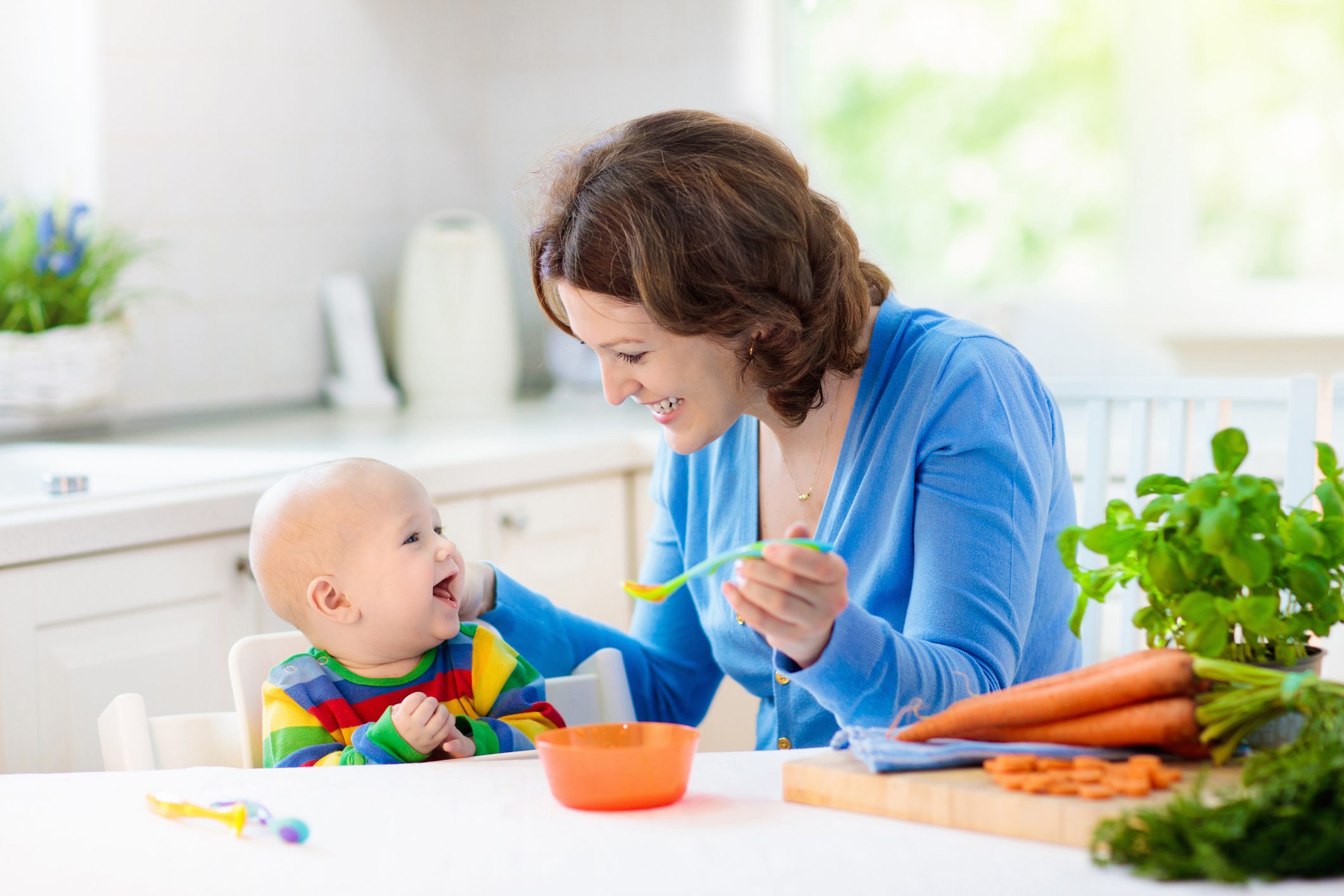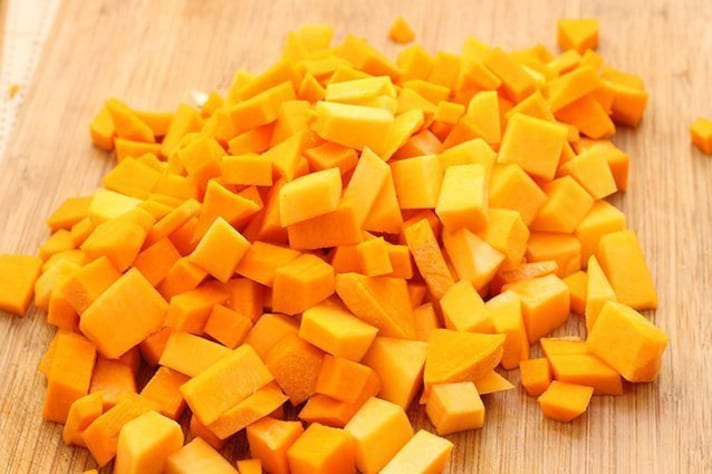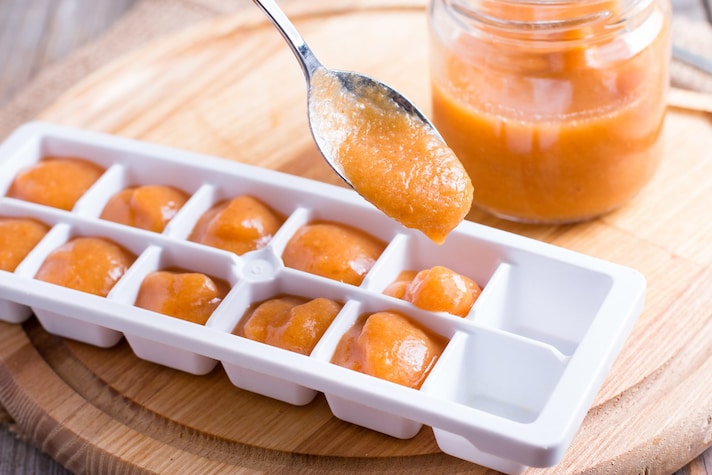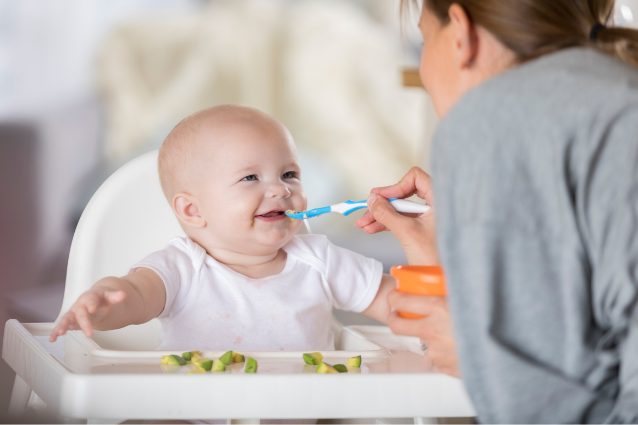New Mom? 10 Baby Food Purees You Can Make at Home!
After a few months of drinking only breast milk or formula, it’s time to introduce your baby to solid foods. And fruit and vegetable purees are one of the best ways to do just that. Start with small, basic quantities and introduce variety as your baby gets used to the new textures and tastes. Read on to see ow you can make your own!
;Resize,width=742;)
There are quite a few benefits to making your own homemade baby puree. Not only is it less expensive, but you also have more control over the ingredients. Which means you determine how much salt, sugar, and preservatives go into your puree. And if you make your purees at home, you don’t run the risk of feeding your baby foods that may cause an allergic reaction. Read on for quick baby purees you can make at home.
Apple puree

Peel, core, and chop two large apples. Cook the apples in two tablespoons of water, simmering for about 10 min, until soft. Use a hand blender or food processor to puree the apples until smooth. Freeze the puree in ice-cube trays, for up to one month. Thaw the frozen puree overnight in the refrigerator.
Pear puree

Peel, seed, and chop one large pear (or two small ones). Cook the pear in two tablespoons of water, simmering for about 20 min, until soft. Use a hand blender or food processor to puree the pear until smooth. Freeze the puree in ice-cube trays, for up to one month. Thaw the frozen puree overnight in the refrigerator.
Avocado

Peel, seed, and chop one medium avocado. Use a fork to mash the avocado until fine, or use a food processor. If your baby is still transitioning to solid foods, you can mix the pureed avocado with a bit of breastmilk or formula. Freeze the puree in ice-cube trays, for up to one month. Thaw the frozen puree overnight in the refrigerator.
Banana puree

Peel and chop two medium bananas. Use a fork to mash the banana until fine, or use a food processor. Mix the pureed banana with a little bit of water to get it to the right consistency. For a creamier puree, you can mix the pureed banana with a bit of breastmilk or formula. Bananas mix well with other fruits such as pear, plums, and strawberries, so feel free to include these in your purees.
Broccoli

Cut the broccoli into florets and chop coarsely. Steam 250g broccoli in two tablespoons water until tender (or cook in the microwave for about 6 minutes). Use a hand blender or food processor to puree the broccoli until smooth. Broccoli can also be combined with apples and yoghurt. Freeze the puree in ice-cube trays, for up to one month. Thaw the frozen puree overnight in the refrigerator.
Carrot

Trim two large carrots, peel and chop coarsely. Cook for 15-20 minutes in two tablespoons water until soft. Blend until smooth. Mix in formula or breast milk for a creamier puree. If the puree is too thick, you can add a little bit of water. Freeze the puree in ice-cube trays, for up to one month. Thaw the frozen puree overnight in the refrigerator.
Pumpkin

Peel a small pumpkin, remove the seeds, and chop coarsely. Steam for about 15-20 minutes. (You can also roast the pumpkin at 200°C for 40 minutes). Blend until smooth, and push through a sieve to ensure a fine consistency. This recipe can also be used for potato puree. Pumpkin puree goes well with apples, pears, and yoghurt.
Zucchini

Use two large zucchinis to make about 1 cup puree. Trim the ends, peel, and chop coarsely. Steam the zucchini for about 10 minutes until soft. Blend until smooth. Mix in formula or breast milk for a creamier puree. For a zucchini-apple combination, substitute one of the two zucchinis for two apples.
No-cook purees

Some fruits are suitable to use in no-cook baby purees. Make sure you wash the fruits thoroughly before using. You can make any of the following:
- Blueberries mixed with a bit of oatmeal
- Kiwis (make sure they’re ripe, otherwise they’ll be too tart)
- Mango (make sure they’re ripe, otherwise they’ll be too tart)
- Pineapple (it can be too tart for baby sometimes, so mix it with a bit of yoghurt or applesauce)
Other add-ins

To make your homemade purees more nutritious, you can mix mis them with formula, breast milk, oatmeal, applesauce, and even Greek yoghurt. If you see the puree is too think, you simply need to add a little bit of water to thin it out. Most purees can be frozen (some like avocado and banana purees can brown quickly), but make sure you thaw it in the refrigerator instead of on the counter.
;Resize,width=767;)

;Resize,width=712;)
;Resize,width=712;)
